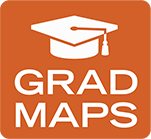| |
Feb 02, 2026
|
|
|
|
|
2022-23 Catalog ARCHIVED CATALOG: Content may no longer be accurate.
Construction Management (AAS)
|
|
- Grade Requirements: A grade of “C” or better in all major courses, business courses, and support courses is required (a grade of “C-” is not acceptable) in addition to an overall GPA for all courses of 2.00 or higher. Also refer to the general grade requirements for graduation under Degree Requirements .
- Credit Hour Requirements: 65 total credit hours are required. A minimum of 20 hours in residence at WSU is required. A student must also complete a minimum of 18 hours of CMT major courses at WSU to obtain an AAS degree.
- Program Code: 8085AAS
- CIPC: 522001
Advisement
All Construction Management Technology students are encouraged to meet with a faculty advisor at the beginning of their freshman and sophomore years for course and program advisement. Call the CMT program secretary at 801-395-3427 to schedule an appointment.
 Use Grad MAPs to plan your degree Use Grad MAPs to plan your degree
Admission Requirements
Declare your program of study (see Enrollment Services and Information ). There are no special admission or application requirements for this program. (Also refer to the Department Advisor Referral List.)
General Education
Refer to the Degree Requirements for Associate of Applied Science requirements. The following courses required for the Construction Management Technology AAS degree will also fulfill general education requirements: COMM 1020 /COMM 2110 (Humanities), MATH 1080 (Quantitative Literacy), ECON 2010 (Social Science), and LIBS 1704 (Information Navigator).
Program Learning Outcomes
- Planning, Organizing, Directing, and Controlling: Students will learn planning, organizing, directing and controlling skills to ethically apply concepts that allow construction projects to be brought in safely on time, using scheduling concepts, within budget, by applying learned estimating skills, and to the owner/client’s desired quality standard. These will be done while identifying and managing the inherent project and industry risks to keep the project and all entities involved free of legal issues via among other things a solid understanding of contracts and how they apply throughout the process.
- Collaboration, Communication, Relationship Building, and Leadership: Students will learn leadership skills and participate in multi-disciplinary teams. They will be part of presentation teams and learn to formulate business plans. Emphasis will be placed on relationship building and team building as well as all forms of effective communication and the thorough/comprehensive documentation necessary to succeed in the construction industry and manage risk.
- Delivery Methods and the Design Process: Students will learn various design principles, including sustainable and life-cycle concepts for both vertical and horizontal construction. They will apply layout principles and create basic designs. An understanding of building codes will be applied and all in the context of planning and delivering a project from program review to schematic design and design development to the final construction design documents.
- Materials, Methods, Terminologies, and Applications: Students will be exposed to how various computer applications are used within the industry but with emphasis on the broader concepts and not promotion of specific software programs. The most common materials, methods, and terminologies will be learned along with equipment uses and selection. Students will learn basic engineering principles and how they apply to these materials and methods.
|
Major Course Requirements for AAS Degree
Construction Management Technology Courses Required (36 credit hours)
Business Courses Required (9 credit hours)
Support Courses Required (17 credit hours)
|
|
|